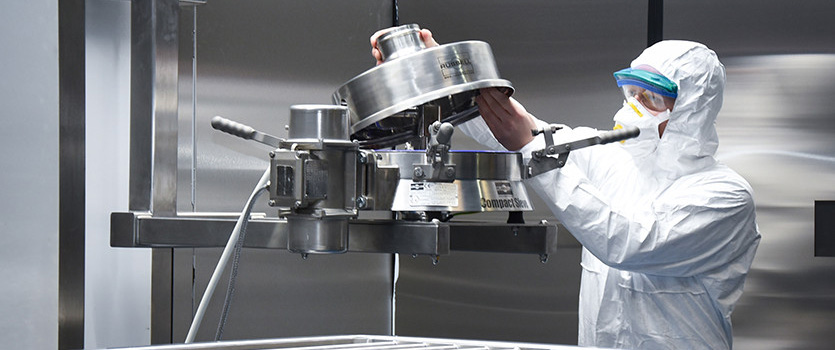
In the aftermath of COP29, which many see as an ineffective way to tackle this global crisis the challenge for business is as always how to not only survive but thrive in what is undoubtedly becoming an even more uncertain world.
According to Climate Action Tracker, the effect of current real-world actions and policies is that we will see a rise of 2.7°C and the latest data from the World Meteorological Organisation shows that from January to September 2024 global mean surface air temperature was 1.54°C above the pre-industrial average.
It’s clear from the almost daily news about climate change impacts that every business is impacted, and I would argue that it’s the SME sector that can have the greatest positive impact through their products, services and business innovations.
Adapting to a world with +2.7°C global warming requires businesses to integrate climate resilience, sustainability, and social responsibility into their strategies.
Here’s a pragmatic approach:
1. Assess risks and vulnerabilities
- Conduct Climate Risk Assessments: Identify how physical risks (e.g. rising sea levels and extreme weather) and transition risks (e.g. stricter regulations and market shifts) will impact operations, supply chains, and markets.
There are a growing number of free resources that are available to businesses to allow them to map sea level rise and surface water flooding impacts against their operations.
- Scenario Planning: Use climate models to predict impacts specific to regions and industries.
2. Build climate-resilient infrastructure
- Adapt Facilities: Upgrade infrastructure to withstand more frequent extreme weather and temperature fluctuations. Made in Britain member Emtez have some great products and resources in this area.
- Diversify Locations: Avoid over-concentration of operations in vulnerable areas. This is another great reason to move as much of your supply chain to Made In Britain members.
3. Strengthen supply chains
- Enhance Redundancy: Build redundancies to reduce disruption risks from natural disasters or resource scarcity.
- Support Suppliers: Help smaller suppliers adapt to climate challenges to ensure continuity.
- Source Sustainably: Prioritize local and renewable inputs to reduce reliance on fragile global networks.

The work of Babcock is this area is market-leading (pictured, above).
4. Transition to low-carbon operations
- Energy Efficiency: Invest in energy-efficient technologies and practices.
- Renewable Energy: Transition to solar, wind, or other renewable energy sources.
A great example of a Made in Britain member who has done this is Rose Calendars.
- Circular Economy Models: Minimise waste by designing products and processes for reuse and recycling.
5. Engage in carbon removal and offsetting
- Carbon Goals: Commit to achieving net-zero emissions by setting science-based targets. The work that Lesjofors has done in this area is impressive
https://www.madeinbritain.org/news/sbti-validates-lesjfors-groups-climate-targets-apr-24 - Offsets: Invest in verified carbon offsets, such as reforestation or renewable energy projects, to balance emissions that can’t be reduced directly.
- Removals: Invest in new technologies that permanently remove carbon, such as Biological, e.g. Afforestation, Peatland restoration, and other nature-based solutions. Hybrid solutions such as Biochar, Bioenergy with Carbon Capture and Storage (BECCS) and engineered solutions such as Direct Air Capture and CO2-cured concrete.

A great example is Russell Finex with their concrete admixtures using Biochar for carbon removal (pictured, above).
6. Innovate products and services
- Sustainable Products: Develop goods and services that align with consumer demand for eco-friendly options.
- Climate-Smart Solutions: Offer innovations like energy-efficient technologies or drought-resistant crops.
A great example is The Oaken street light, minimising the carbon footprint throughout its entire lifecycle, from construction to end-of-life disposal.
7. Collaborate and advocate
- Partnerships: Work with governments, NGOs, and industry groups to tackle systemic climate challenges. Signal Group have been working with the University of Sheffield to support a clean fuel future.
- Policy Advocacy: Support policies promoting renewable energy, carbon pricing, and climate adaptation.
8. Invest in employee and community resilience
- Training: Provide employees with skills to navigate a changing climate and economy.
- Health and Safety: Prepare for the health impacts of climate change, such as heat waves or new disease patterns.
- Community Engagement: Build goodwill by investing in local climate adaptation projects.
A great example of this type of investment from Made in Britain members is Imperial Polythene with its Community Impact Fund.
9. Monitor and report progress
- Transparent Reporting: Use frameworks like the Task Force on Climate-related Financial Disclosures (TCFD) or Global Reporting Initiative (GRI) to share climate actions.
- Metrics and KPIs: Regularly measure progress against goals to ensure accountability.
Just look at the work of Dextra Group, who make 20,000 CIBSE TM65 certificates available to their clients.
10. Rethink growth models
- Long-Term Perspective: Shift from short-term profits to sustainable growth strategies.
- Inclusive Economies: Ensure the benefits of growth reach vulnerable populations affected by climate change.
Key challenges
Let’s not be naive about this, there will need to be difficult discussions and decisions and trade-offs to be made. We will need to:
- Balance immediate costs with long-term gains.
- Navigate uncertain regulatory environments.
- Overcome resistance to change within organisational cultures.
- Communicate clearly and effectively with our customers and avoid greenwash.
By integrating these strategies, businesses can protect their operations, seize opportunities in emerging green markets, and contribute to a more resilient global economy.
By Made in Britain 10 months ago | By Made in Britain